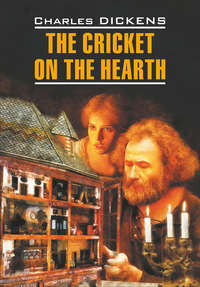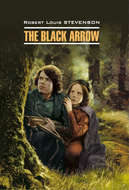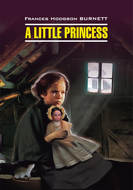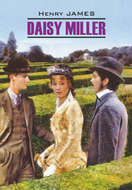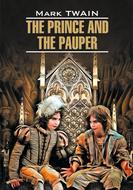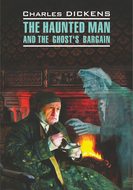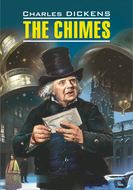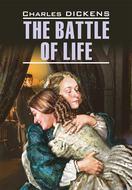Kitobni o'qish: «The Cricket on the Hearth / Сверчок за очагом. Книга для чтения на английском языке»
Комментарии и словарь Е. Г. Тигонен
© КАРО, 2016
Chapter 1
Chirp the First
The kettle began it! Don’t tell me what Mrs. Peerybingle said. I know better. Mrs. Peerybingle may leave it on record to the end of time that she couldn’t say which of them began it; but, I say the kettle did. I ought to know, I hope! The kettle began it, full five minutes by the little waxy-faced Dutch clock in the corner, before the Cricket uttered a chirp.
As if the clock hadn’t finished striking, and the convulsive little Haymaker at the top of it, jerking away right and left with a scythe in front of a Moorish Palace, hadn’t mowed down half an acre of imaginary grass before the Cricket joined in at all!
Why, I am not naturally positive. Every one knows that. I wouldn’t set my own opinion against the opinion of Mrs. Peerybingle, unless I were quite sure, on any account whatever. Nothing should induce me. But, this is a question of fact. And the fact is, that the kettle began it, at least five minutes before the Cricket gave any sign of being in existence. Contradict me, and I’ll say ten.
Let me narrate exactly how it happened. I should have proceeded to do so in my very first word, but for this plain consideration – if I am to tell a story I must begin at the beginning; and how is it possible to begin at the beginning, without beginning at the kettle?
It appeared as if there were a sort of match, or trial of skill, you must understand, between the kettle and the Cricket. And this is what led to it, and how it came about.
Mrs. Peerybingle, going out into the raw twilight, and clicking over the wet stones in a pair of pattens that worked innumerable rough impressions of the first proposition in Euclid all about the yard – Mrs. Peerybingle filled the kettle at the water-butt. Presently returning, less the pattens (and a good deal less, for they were tall and Mrs. Peerybingle was but short), she set the kettle on the fire. In doing which she lost her temper1, or mislaid it for an instant; for, the water being uncomfortably cold, and in that slippy, slushy, sleety sort of state wherein it seems to penetrate through every kind of substance, patten rings included – had laid hold of Mrs. Peerybingle’s toes, and even splashed her legs. And when we rather plume ourselves (with reason too) upon our legs, and keep ourselves particularly neat in point of stockings, we find this, for the moment, hard to bear.
Besides, the kettle was aggravating and obstinate. It wouldn’t allow itself to be adjusted on the top bar; it wouldn’t hear of accommodating itself kindly to the knobs of coal; it would lean forward with a drunken air, and dribble, a very idiot of a kettle, on the hearth. It was quarrelsome, and hissed and spluttered morosely at the fire. To sum up all, the lid, resisting Mrs. Peerybingle’s fingers, first of all turned topsy-turvy, and then, with an ingenious pertinacity deserving of a better cause, dived sideways in – down to the very bottom of the kettle. And the hull of the Royal George has never made half the monstrous resistance to coming out of the water, which the lid of that kettle employed against Mrs. Peerybingle, before she got it up again.
It looked sullen and pig-headed enough, even then; carrying its handle with an air of defiance, and cocking its spout pertly and mockingly at Mrs. Peerybingle, as if it said, ‘I won’t boil. Nothing shall induce me!’
But Mrs. Peerybingle, with restored good humour, dusted her chubby little hands against each other, and sat down before the kettle, laughing. Meantime, the jolly blaze uprose and fell, flashing and gleaming on the little Haymaker at the top of the Dutch clock, until one might have thought he stood stock still before the Moorish Palace, and nothing was in motion but the flame.
He was on the move, however; and had his spasms, two to the second, all right and regular. But, his sufferings when the clock was going to strike, were frightful to behold; and, when a Cuckoo looked out of a trap-door in the Palace, and gave note six times, it shook him, each time, like a spectral voice – or like a something wiry, plucking at his legs.
It was not until a violent commotion and a whirring noise among the weights and ropes below him had quite subsided, that this terrified Haymaker became himself again. Nor was he startled without reason; for these rattling, bony skeletons of clocks are very disconcerting in their operation, and I wonder very much how any set of men, but most of all how Dutchmen, can have had a liking to invent them. There is a popular belief that Dutchmen love broad cases and much clothing for their own lower selves; and they might know better than to leave their clocks so very lank and unprotected, surely.
Now it was, you observe, that the kettle began to spend the evening. Now it was, that the kettle, growing mellow and musical, began to have irrepressible gurglings in its throat, and to indulge in short vocal snorts, which it checked in the bud, as if it hadn’t quite made up its mind yet, to be good company. Now it was, that after two or three such vain attempts to stifle its convivial sentiments, it threw off all moroseness, all reserve, and burst into a stream of song so cosy and hilarious, as never maudlin nightingale yet formed the least idea of.
So plain too! Bless you, you might have understood it like a book – better than some books you and I could name, perhaps. With its warm breath gushing forth in a light cloud which merrily and gracefully ascended a few feet, then hung about the chimney-corner as its own domestic Heaven, it trolled its song with that strong energy of cheerfulness, that its iron body hummed and stirred upon the fire; and the lid itself, the recently rebellious lid – such is the influence of a bright example – performed a sort of jig, and clattered like a deaf and dumb young cymbal that had never known the use of its twin brother.
That this song of the kettle’s was a song of invitation and welcome to somebody out of doors: to somebody at that moment coming on, towards the snug small home and the crisp fire: there is no doubt whatever. Mrs. Peerybingle knew it, perfectly, as she sat musing before the hearth. It’s a dark night, sang the kettle, and the rotten leaves are lying by the way; and, above, all is mist and darkness, and, below, all is mire and clay; and there’s only one relief in all the sad and murky air; and I don’t know that it is one, for it’s nothing but a glare; of deep and angry crimson, where the sun and wind together; set a brand upon the clouds for being guilty of such weather; and the widest open country is a long dull streak of black; and there’s hoar-frost on the finger-post, and thaw upon the track; and the ice it isn’t water, and the water isn’t free; and you couldn’t say that anything is what it ought to be; but he’s coming, coming, coming! —
And here, if you like, the Cricket did chime in2! with a Chirrup, Chirrup, Chirrup of such magnitude, by way of chorus; with a voice so astoundingly disproportionate to its size, as compared with the kettle; (size! you couldn’t see it!) that if it had then and there burst itself like an overcharged gun, if it had fallen a victim on the spot, and chirruped its little body into fifty pieces, it would have seemed a natural and inevitable consequence, for which it had expressly laboured.
The kettle had had the last of its solo performance. It persevered with undiminished ardour; but the Cricket took first fiddle and kept it. Good Heaven, how it chirped! Its shrill, sharp, piercing voice resounded through the house, and seemed to twinkle in the outer darkness like a star. There was an indescribable little trill and tremble in it, at its loudest, which suggested its being carried off its legs, and made to leap again, by its own intense enthusiasm. Yet they went very well together, the Cricket and the kettle. The burden of the song was still the same; and louder, louder, louder still, they sang it in their emulation.
The fair little listener – for fair she was, and young: though something of what is called the dumpling shape; but I don’t myself object to that – lighted a candle, glanced at the Haymaker on the top of the clock, who was getting in a pretty average crop of minutes; and looked out of the window, where she saw nothing, owing to the darkness, but her own face imaged in the glass. And my opinion is (and so would yours have been), that she might have looked a long way, and seen nothing half so agreeable. When she came back, and sat down in her former seat, the Cricket and the kettle were still keeping it up3, with a perfect fury of competition. The kettle’s weak side clearly being, that he didn’t know when he was beat.
There was all the excitement of a race about it. Chirp, chirp, chirp! Cricket a mile ahead. Hum, hum, hum-m-m! Kettle making play in the distance, like a great top. Chirp, chirp, chirp! Cricket round the corner. Hum, hum, hum-m-m! Kettle sticking to him in his own way; no idea of giving in. Chirp, chirp, chirp! Cricket fresher than ever. Hum, hum, hum-m-m! Kettle slow and steady. Chirp, chirp, chirp! Cricket going in to finish him. Hum, hum, hum-m-m! Kettle not to be finished. Until at last they got so jumbled together, in the hurry-skurry, helter-skelter, of the match, that whether the kettle chirped and the Cricket hummed, or the Cricket chirped and the kettle hummed, or they both chirped and both hummed, it would have taken a clearer head than yours or mine to have decided with anything like certainty. But, of this, there is no doubt: that, the kettle and the Cricket, at one and the same moment4, and by some power of amalgamation best known to themselves, sent, each, his fireside song of comfort streaming into a ray of the candle that shone out through the window, and a long way down the lane. And this light, bursting on a certain person who, on the instant, approached towards it through the gloom, expressed the whole thing to him, literally in a twinkling, and cried, ‘Welcome home, old fellow! Welcome home, my boy!’
This end attained, the kettle, being dead beat, boiled over, and was taken off the fire. Mrs. Peerybingle then went running to the door, where, what with the wheels of a cart, the tramp of a horse, the voice of a man, the tearing in and out of an excited dog, and the surprising and mysterious appearance of a baby, there was soon the very What’s-his-name to pay.
Where the baby came from, or how Mrs. Peerybingle got hold of it in that flash of time, I don’t know. But a live baby there was, in Mrs. Peerybingle’s arms; and a pretty tolerable amount of pride she seemed to have in it, when she was drawn gently to the fire, by a sturdy figure of a man, much taller and much older than herself, who had to stoop a long way down, to kiss her. But she was worth the trouble. Six foot six, with the lumbago, might have done it.
‘Oh goodness, John!’ said Mrs. P. ‘What a state you are in with the weather!’
He was something the worse for it, undeniably. The thick mist hung in clots upon his eyelashes like candied thaw; and between the fog and fire together, there were rainbows in his very whiskers.
‘Why, you see, Dot,’ John made answer, slowly, as he unrolled a shawl from about his throat; and warmed his hands; ‘it – it an’t exactly summer weather. So, no wonder.’
‘I wish you wouldn’t call me Dot, John. I don’t like it,’ said Mrs. Peerybingle: pouting in a way that clearly showed she did like it, very much.
‘Why, what else are you?’ returned John, looking down upon her with a smile, and giving her waist as light a squeeze as his huge hand and arm could give. ‘A dot and’ – here he glanced at the baby – ‘a dot and carry – I won’t say it, for fear I should spoil it; but I was very near a joke. I don’t know as ever I was nearer.’
He was often near to something or other very clever, by his own account5: this lumbering, slow, honest John; this John so heavy, but so light of spirit; so rough upon the surface, but so gentle at the core; so dull without, so quick within; so stolid, but so good! Oh Mother Nature, give thy children the true poetry of heart that hid itself in this poor Carrier’s breast – he was but a Carrier by the way – and we can bear to have them talking prose, and leading lives of prose; and bear to bless thee for their company!
It was pleasant to see Dot, with her little figure, and her baby in her arms: a very doll of a baby: glancing with a coquettish thoughtfulness at the fire, and inclining her delicate little head just enough on one side to let it rest in an odd, half-natural, half-affected, wholly nestling and agreeable manner, on the great rugged figure of the Carrier. It was pleasant to see him, with his tender awkwardness, endeavouring to adapt his rude support to her slight need, and make his burly middle-age a leaning-staff not inappropriate to her blooming youth. It was pleasant to observe how Tilly Slowboy, waiting in the background for the baby, took special cognizance (though in her earliest teens) of this grouping; and stood with her mouth and eyes wide open, and her head thrust forward, taking it in as if it were air. Nor was it less agreeable to observe how John the Carrier, reference being made by Dot to the aforesaid baby, checked his hand when on the point of touching the infant, as if he thought he might crack it; and bending down, surveyed it from a safe distance, with a kind of puzzled pride, such as an amiable mastiff might be supposed to show, if he found himself, one day, the father of a young canary.
‘An’t he beautiful, John? Don’t he look precious in his sleep?’
‘Very precious,’ said John. ‘Very much so. He generally is asleep, an’t he?’
‘Lor, John! Good gracious no!’
‘Oh,’ said John, pondering. ‘I thought his eyes was generally shut. Halloa!’
‘Goodness, John, how you startle one!’
‘It an’t right for him to turn ’em up in that way!’ said the astonished Carrier, ‘is it? See how he’s winking with both of ’em at once! And look at his mouth! Why he’s gasping like a gold and silver fish!’
‘You don’t deserve to be a father, you don’t,’ said Dot, with all the dignity of an experienced matron. ‘But how should you know what little complaints children are troubled with, John! You wouldn’t so much as know their names, you stupid fellow.’ And when she had turned the baby over on her left arm, and had slapped its back as a restorative, she pinched her husband’s ear, laughing.
‘No,’ said John, pulling off his outer coat. ‘It’s very true, Dot. I don’t know much about it. I only know that I’ve been fighting pretty stiffly with the wind to-night. It’s been blowing north-east, straight into the cart, the whole way home.’
‘Poor old man, so it has!’ cried Mrs. Peerybingle, instantly becoming very active. ‘Here! Take the precious darling, Tilly, while I make myself of some use. Bless it, I could smother it with kissing it, I could! Hie then6, good dog! Hie, Boxer, boy! Only let me make the tea first, John; and then I’ll help you with the parcels, like a busy bee. “How doth the little” – and all the rest of it, you know, John. Did you ever learn “how doth the little,” when you went to school, John?’
‘Not to quite know it,’ John returned. ‘I was very near it once. But I should only have spoilt it, I dare say.’
‘Ha ha,’ laughed Dot. She had the blithest little laugh you ever heard. ‘What a dear old darling of a dunce you are, John, to be sure!’
Not at all disputing this position, John went out to see that the boy with the lantern, which had been dancing to and fro before the door and window, like a Will of the Wisp, took due care of the horse; who was fatter than you would quite believe, if I gave you his measure, and so old that his birthday was lost in the mists of antiquity. Boxer, feeling that his attentions were due to the family in general, and must be impartially distributed, dashed in and out with bewildering inconstancy; now, describing a circle of short barks round the horse, where he was being rubbed down at the stable-door; now feigning to make savage rushes at his mistress, and facetiously bringing himself to sudden stops; now, eliciting a shriek from Tilly Slowboy, in the low nursing-chair near the fire, by the unexpected application of his moist nose to her countenance; now, exhibiting an obtrusive interest in the baby; now, going round and round upon the hearth, and lying down as if he had established himself for the night; now, getting up again, and taking that nothing of a fag-end of a tail of his, out into the weather, as if he had just remembered an appointment, and was off, at a round trot, to keep it.
‘There! There’s the teapot, ready on the hob!’ said Dot; as briskly busy as a child at play at keeping house. ‘And there’s the cold knuckle of ham; and there’s the butter; and there’s the crusty loaf, and all! Here’s the clothes-basket for the small parcels, John, if you’ve got any there – where are you, John?’
‘Don’t let the dear child fall under the grate, Tilly, whatever you do!’
It may be noted of Miss Slowboy, in spite of her rejecting the caution with some vivacity, that she had a rare and surprising talent for getting this baby into difficulties and had several times imperilled its short life, in a quiet way peculiarly her own. She was of a spare and straight shape, this young lady, insomuch that her garments appeared to be in constant danger of sliding off those sharp pegs, her shoulders, on which they were loosely hung. Her costume was remarkable for the partial development, on all possible occasions, of some flannel vestment of a singular structure; also for affording glimpses, in the region of the back, of a corset, or pair of stays7, in colour a dead-green. Being always in a state of gaping admiration at everything, and absorbed, besides, in the perpetual contemplation of her mistress’s perfections and the baby’s, Miss Slowboy, in her little errors of judgment, may be said to have done equal honour to her head and to her heart; and though these did less honour to the baby’s head, which they were the occasional means of bringing into contact with deal doors, dressers, stair-rails, bed-posts, and other foreign substances, still they were the honest results of Tilly Slowboy’s constant astonishment at finding herself so kindly treated, and installed in such a comfortable home. For, the maternal and paternal Slowboy were alike unknown to Fame, and Tilly had been bred by public charity, a foundling; which word, though only differing from fondling by one vowel’s length, is very different in meaning, and expresses quite another thing.
To have seen little Mrs. Peerybingle come back with her husband, tugging at the clothes-basket, and making the most strenuous exertions to do nothing at all (for he carried it), would have amused you almost as much as it amused him. It may have entertained the Cricket too, for anything I know; but, certainly, it now began to chirp again, vehemently.
‘Heyday!8’ said John, in his slow way. ‘It’s merrier than ever, to-night, I think.’
‘And it’s sure to bring us good fortune, John! It always has done so. To have a Cricket on the Hearth, is the luckiest thing in all the world!’
John looked at her as if he had very nearly got the thought into his head, that she was his Cricket in chief, and he quite agreed with her. But, it was probably one of his narrow escapes, for he said nothing.
‘The first time I heard its cheerful little note, John, was on that night when you brought me home – when you brought me to my new home here; its little mistress. Nearly a year ago. You recollect, John?’
O yes. John remembered. I should think so!
‘Its chirp was such a welcome to me! It seemed so full of promise and encouragement. It seemed to say, you would be kind and gentle with me, and would not expect (I had a fear of that, John, then) to find an old head on the shoulders of your foolish little wife.’
John thoughtfully patted one of the shoulders, and then the head, as though he would have said No, no; he had had no such expectation; he had been quite content to take them as they were. And really he had reason. They were very comely.
‘It spoke the truth, John, when it seemed to say so; for you have ever been, I am sure, the best, the most considerate, the most affectionate of husbands to me. This has been a happy home, John; and I love the Cricket for its sake!’
‘Why so do I then,’ said the Carrier. ‘So do I, Dot.’
‘I love it for the many times I have heard it, and the many thoughts its harmless music has given me. Sometimes, in the twilight, when I have felt a little solitary and down-hearted, John – before baby was here to keep me company and make the house gay – when I have thought how lonely you would be if I should die; how lonely I should be if I could know that you had lost me, dear; its Chirp, Chirp, Chirp upon the hearth, has seemed to tell me of another little voice, so sweet, so very dear to me, before whose coming sound my trouble vanished like a dream. And when I used to fear – I did fear once, John, I was very young you know – that ours might prove to be an ill-assorted marriage, I being such a child, and you more like my guardian than my husband; and that you might not, however hard you tried, be able to learn to love me, as you hoped and prayed you might; its Chirp, Chirp, Chirp has cheered me up again, and filled me with new trust and confidence. I was thinking of these things tonight, dear, when I sat expecting you; and I love the Cricket for their sake!’
‘And so do I,’ repeated John. ‘But, Dot? I hope and pray that I might learn to love you? How you talk! I had learnt that, long before I brought you here, to be the Cricket’s little mistress, Dot!’
She laid her hand, an instant, on his arm, and looked up at him with an agitated face, as if she would have told him something. Next moment she was down upon her knees before the basket, speaking in a sprightly voice, and busy with the parcels.
‘There are not many of them to-night, John, but I saw some goods behind the cart, just now; and though they give more trouble, perhaps, still they pay as well; so we have no reason to grumble, have we? Besides, you have been delivering, I dare say, as you came along?’
‘Oh yes,’ John said. ‘A good many.’
‘Why, what’s this round box? Heart alive, John, it’s a wedding-cake!’
‘Leave a woman alone to find out that,’ said John, admiringly. ‘Now a man would never have thought of it. Whereas, it’s my belief that if you was to pack a wedding-cake up in a tea-chest, or a turn-up bedstead, or a pickled salmon keg, or any unlikely thing, a woman would be sure to find it out directly. Yes; I called for it at the pastry-cook’s.’
‘And it weighs I don’t know what – whole hundredweights9!’ cried Dot, making a great demonstration of trying to lift it. ‘Whose is it, John? Where is it going?’
‘Read the writing on the other side,’ said John.
‘Why, John! My Goodness, John!’
‘Ah! who’d have thought it!’ John returned.
‘You never mean to say,’ pursued Dot, sitting on the floor and shaking her head at him, ‘that it’s Gruff and Tackleton the Toymaker!’
John nodded.
Mrs. Peerybingle nodded also, fifty times at least. Not in assent – in dumb and pitying amazement; screwing up her lips the while with all their little force (they were never made for screwing up; I am clear of that), and looking the good Carrier through and through, in her abstraction. Miss Slowboy, in the mean time10, who had a mechanical power of reproducing scraps of current conversation for the delectation of the baby, with all the sense struck out of them, and all the nouns changed into the plural number, inquired aloud of that young creature, Was it Gruffs and Tackletons the toymakers then, and Would it call at Pastry-cooks for wedding-cakes, and Did its mothers know the boxes when its fathers brought them homes; and so on.
‘And that is really to come about!’ said Dot. ‘Why, she and I were girls at school together, John.’
He might have been thinking of her, or nearly thinking of her, perhaps, as she was in that same school time. He looked upon her with a thoughtful pleasure, but he made no answer.
‘And he’s as old! As unlike her! – Why, how many years older than you, is Gruff and Tackleton, John?’
‘How many more cups of tea shall I drink tonight at one sitting, than Gruff and Tackleton ever took in four, I wonder!’ replied John, good-humouredly, as he drew a chair to the round table, and began at the cold ham. ‘As to eating, I eat but little; but that little I enjoy, Dot.’
Even this, his usual sentiment at meal times, one of his innocent delusions (for his appetite was always obstinate, and flatly contradicted him), awoke no smile in the face of his little wife, who stood among the parcels, pushing the cake-box slowly from her with her foot, and never once looked, though her eyes were cast down too, upon the dainty shoe she generally was so mindful of. Absorbed in thought, she stood there, heedless alike of the tea and John (although he called to her, and rapped the table with his knife to startle her), until he rose and touched her on the arm; when she looked at him for a moment, and hurried to her place behind the teaboard, laughing at her negligence. But, not as she had laughed before. The manner and the music were quite changed.
The Cricket, too, had stopped. Somehow the room was not so cheerful as it had been. Nothing like it.
‘So, these are all the parcels, are they, John?’ she said, breaking a long silence, which the honest Carrier had devoted to the practical illustration of one part of his favourite sentiment – certainly enjoying what he ate, if it couldn’t be admitted that he ate but little. ‘So, these are all the parcels; are they, John?’
‘That’s all,’ said John. ‘Why – no – I —’ laying down his knife and fork, and taking a long breath. ‘I declare – I’ve clean forgotten11 the old gentleman!’
‘The old gentleman?’
‘In the cart,’ said John. ‘He was asleep, among the straw, the last time I saw him. I’ve very nearly remembered him, twice, since I came in; but he went out of my head again. Holloa! Yahip there! Rouse up! That’s my hearty!’
John said these latter words outside the door, whither he had hurried with the candle in his hand.
Miss Slowboy, conscious of some mysterious reference to The Old Gentleman, and connecting in her mystified imagination certain associations of a religious nature with the phrase, was so disturbed, that hastily rising from the low chair by the fire to seek protection near the skirts of her mistress, and coming into contact as she crossed the doorway with an ancient Stranger, she instinctively made a charge or butt at him with the only offensive instrument within her reach. This instrument happening to be the baby, great commotion and alarm ensued, which the sagacity of Boxer rather tended to increase; for, that good dog, more thoughtful than its master, had, it seemed, been watching the old gentleman in his sleep, lest he should walk off with a few young poplar trees that were tied up behind the cart; and he still attended on him very closely, worrying his gaiters in fact, and making dead sets at the buttons12.
‘You’re such an undeniable good sleeper, sir,’ said John, when tranquillity was restored; in the mean time the old gentleman had stood, bareheaded and motionless, in the centre of the room; ‘that I have half a mind to ask you where the other six are – only that would be a joke, and I know I should spoil it. Very near though,’ murmured the Carrier, with a chuckle; ‘very near!’
The Stranger, who had long white hair, good features, singularly bold and well defined for an old man, and dark, bright, penetrating eyes, looked round with a smile, and saluted the Carrier’s wife by gravely inclining his head.
His garb was very quaint and odd – a long, long way behind the time13. Its hue was brown, all over. In his hand he held a great brown club or walking-stick; and striking this upon the floor, it fell asunder, and became a chair. On which he sat down, quite composedly.
‘There!’ said the Carrier, turning to his wife. ‘That’s the way I found him, sitting by the roadside! Upright as a milestone. And almost as deaf.’
‘Sitting in the open air, John!’
‘In the open air,’ replied the Carrier, ‘just at dusk. “Carriage Paid,” he said; and gave me eighteenpence. Then he got in. And there he is.’
‘He’s going, John, I think!’
Not at all. He was only going to speak.
‘If you please, I was to be left till called for,’ said the Stranger, mildly. ‘Don’t mind me.’
With that, he took a pair of spectacles from one of his large pockets, and a book from another, and leisurely began to read. Making no more of Boxer than if he had been a house lamb!
The Carrier and his wife exchanged a look of perplexity. The Stranger raised his head; and glancing from the latter to the former, said,
‘Your daughter, my good friend?’
‘Wife,’ returned John.
‘Niece?’ said the Stranger.
‘Wife,’ roared John.
‘Indeed?’ observed the Stranger. ‘Surely? Very young!’
He quietly turned over, and resumed his reading. But, before he could have read two lines, he again interrupted himself to say:
‘Baby, yours?’
John gave him a gigantic nod; equivalent to an answer in the affirmative14, delivered through a speaking trumpet.
‘Girl?’
‘Bo-o-oy!’ roared John.
‘Also very young, eh?’
Mrs. Peerybingle instantly struck in. ‘Two months and three da-ays! Vaccinated just six weeks ago-o! Took very finely! Considered, by the doctor, a remarkably beautiful ch-ild! Equal to the general run of children at five months o-old! Takes notice, in a way quite wonderful! May seem impossible to you, but feels his legs al-ready!’
Here the breathless little mother, who had been shrieking these short sentences into the old man’s ear, until her pretty face was crimsoned, held up the Baby before him as a stubborn and triumphant fact; while Tilly Slowboy, with a melodious cry of ‘Ketcher, Ketcher’ – which sounded like some unknown words, adapted to a popular Sneeze – performed some cow-like gambols round that all unconscious Innocent.
lost her temper – (разг.) разозлилась
[Закрыть]
did chime in – (разг.) подал голос; вступил в разговор
[Закрыть]
were still keeping it up – (разг.) не останавливались; продолжали
[Закрыть]
at one and the same moment – (уст.) одновременно
[Закрыть]
by his own account – (уст.) по его мнению
[Закрыть]
Hie then – (уст.) Поторопись; иди сюда скорее
[Закрыть]
pair of stays – (уст.) корсет
[Закрыть]
Heyday! – восклицание, выражающее радость, изумление
[Закрыть]
Hundredweights – в Англии мера веса = 112 фунтов = 50,8 кг
[Закрыть]
in the mean time – (разг.) тем временем
[Закрыть]
I’ve clean forgotten – (уст.) я совершенно забыл
[Закрыть]
making dead sets at the buttons – (разг.) решил во что бы то ни стало добраться до его пуговиц
[Закрыть]
a long, long way behind the time – (зд.) давным-давно вышло из моды
[Закрыть]
an answer in the affirmative – (уст.) утвердительный ответ
[Закрыть]
Bepul matn qismi tugad.
